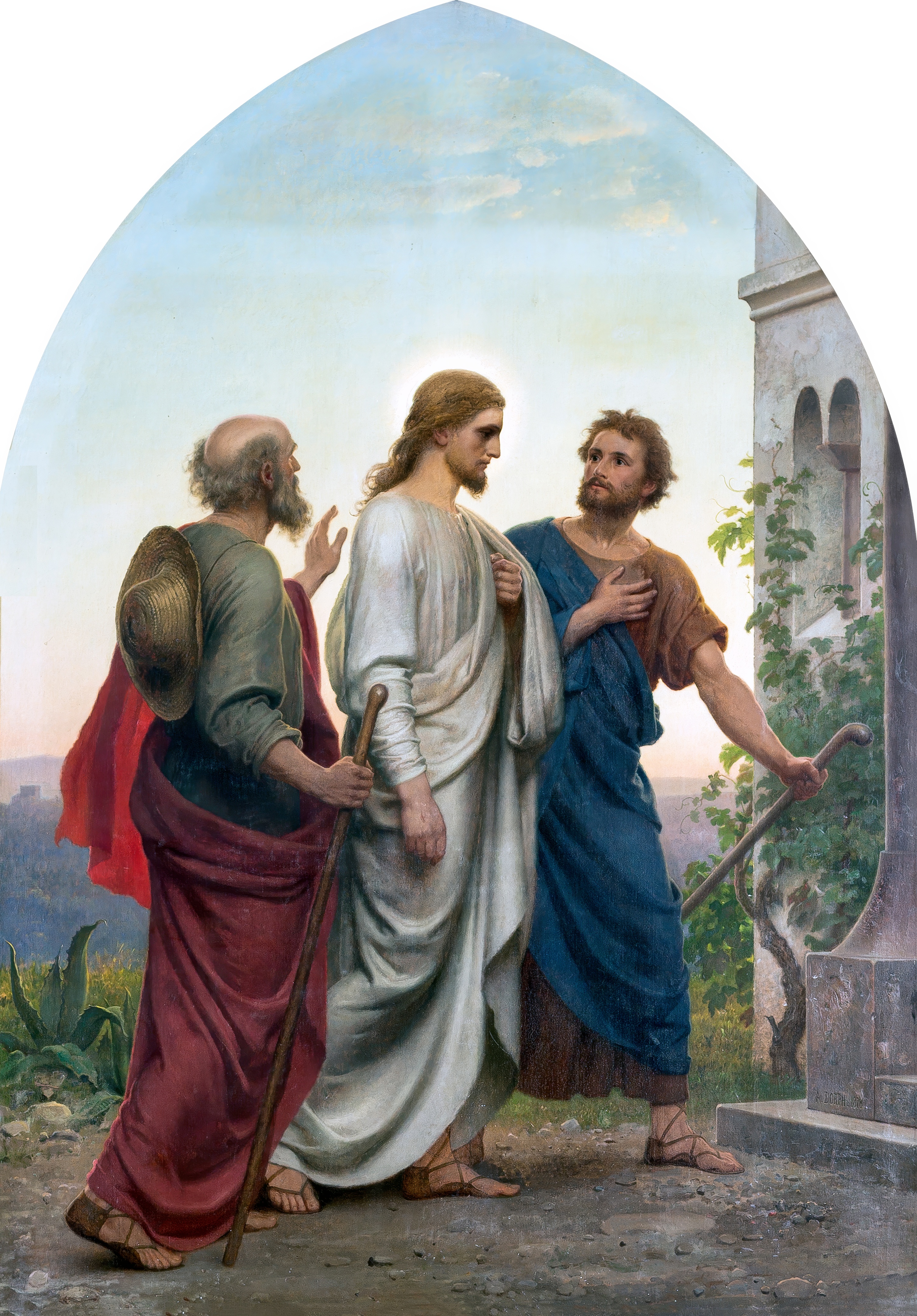“But seek first the kingdom of God and His righteousness, and all these things will be given you besides.” The Gospel reading today is part of the bigger Sermon on the Mount, which spans three chapters (Matthew 5-7) that are still relevant today. Christ’s words to his listeners about dependence on God are more important than ever in the twenty-first century.
We live in a world that has removed most of the inconveniences of daily life. No need to wash or clean by hand; we have machines for that. No need to travel on foot or by horse; we have cars and planes. There are some great blessings to this era, including safer, better ways to live, and that is a gift we shouldn’t take for granted! However, the control we have in many areas of our lives comes with a downside: the temptation to try to control every part of our lives.
It is an easy and understandable mistake to make. We already take charge of so many things. We press a button, and the problem gets fixed. Unfortunately, that method only works with machines, and human beings are not machines. Our lives cannot be programmed. Truthfully, the most important things in life – God and others, living and dying, love and loss – are not the kind of things we can control.
That was no less true for Christ’s audience two thousand years ago. His listeners were people from a world very different from ours with no modern conveniences, no easy way of life. He told them, “Therefore I tell you, do not worry about your life.” Not a single part of it.
As always, He gives us a practical reason and a deeper philosophical reason for that. The practical reason is simple: Worry never did anybody any good. In fact, as we know from experience, worry often makes a situation worse! And the philosophical reason is this: We truly have no reason to worry.
We have a Father Who loves us so dearly that He will do anything to give us whatever we need to come home to Him. Anything. My brother once said to me, “God loved you enough that He let His only Son die for you. You really think He isn’t going to take care of your problems?” Lost keys. A missed job interview. A falling-out with a family member or friend. The loss of a loved one. No matter how convenient our modern age is, we still can’t control the things that matter most to us. And we aren’t supposed to.
Who should be in charge, you or me, imperfect humans who can’t always see the deeper picture? Or our loving Father, Who sees and wills all things for our good (even lost keys!)? He will not let a single thing happen to you that will take you away from Him. All He asks, as He reminds us in today’s Gospel, is that we trust Him to take care of it all, today, tomorrow and always.
“[B]usquen primero el Reino de Dios y su justicia, y todas estas cosas se les darán por añadidura”. La lectura del Evangelio de hoy forma parte del Sermón del Monte, que abarca tres capítulos (Mateo 5-7) que siguen siendo relevantes el día de hoy. Las palabras de Cristo a sus oyentes sobre la dependencia de Dios son más importantes que nunca en el siglo XXI.
Vivimos en un mundo que ha eliminado la mayoría de los inconveniencias de la vida diaria. No es necesario lavar o limpiar a mano; tenemos máquinas para eso. No es necesario viajar a pie o a caballo; tenemos vehículos y aviones. Esta época tiene grandes bendiciones, incluidas formas de vida más seguras y mejores, ¡y ese es un regalo que no deberíamos tomar por hecho! Sin embargo, el control que tenemos en muchas áreas de la vida tiene un lado negativo: la tentación de tratar de controlar cada parte de la vida.
Es un error fácil y comprensible de cometer. Ya nos hacemos cargo de muchas cosas. Apretamos un botón y el problema se soluciona. Desafortunadamente, este método sólo funciona con máquinas, y los seres humanos no son máquinas. Nuestras vidas no pueden ser programadas. La verdad es que las cosas más importantes de la vida – Dios y los demás, vivir y morir, el amor y la pérdida – no son cosas que podemos controlar.
Eso no era menos cierto para la audiencia de Cristo hace dos mil años. Sus oyentes eran personas de un mundo muy diferente al nuestro, sin comodidades modernas, sin un estilo de vida fácil. Él les dijo: “Por eso les digo que no se preocupen por su vida”. Ni una sola parte de ella.
Como siempre, Él nos da una razón práctica y una razón filosófica más profunda para eso. La razón práctica es simple: la preocupación nunca le hizo ningún bien a nadie. De hecho, como sabemos por experiencia, ¡la preocupación a menudo empeora una situación! Y la razón filosófica es esta: realmente no tenemos ninguna razón para preocuparnos.
Tenemos un Padre que nos ama tanto que hará cualquier cosa para darnos lo que necesitemos para volver a casa con Él. Cualquier cosa. Mi hermano una vez me dijo: “Dios te amó lo suficiente como para permitir que Su único Hijo muriera por ti. ¿De verdad crees que Él no se va a encargar de tus problemas? Llaves perdidas. Una entrevista de trabajo perdida. Una pelea con un familiar o un amigo. La pérdida de un ser querido. No importa cuán conveniente sea nuestra era moderna, todavía no podemos controlar las cosas que más nos importan. Y no debamos poder hacerlo.
¿Quién debería estar a cargo, tú o yo, seres humanos imperfectos que no siempre podemos ver el panorama más profundo? ¿O nuestro Padre amoroso, que ve y quiere todas las cosas para nuestro bien (incluso las llaves perdidas)? Él no permitirá que te suceda ni una sola cosa que te aleje de Él. Lo único que te pide, como nos recuerda en el Evangelio de hoy, es que confiemos que Él se encargará de todo, hoy, mañana, y siempre.
 Hailing from Nashville, Catherine is a graduate of Christendom College with a lifelong passion for words. Her love of writing and her Catholic Faith continue to shape her as a freelance editor, copywriter, and (aspiring) novelist, where she pursues her passions for the love and greater glory of God.
Hailing from Nashville, Catherine is a graduate of Christendom College with a lifelong passion for words. Her love of writing and her Catholic Faith continue to shape her as a freelance editor, copywriter, and (aspiring) novelist, where she pursues her passions for the love and greater glory of God.
Feature Image Credit: Guillaume de Germain, unsplash.com/photos/man-standing-under-orange-sky-rEVQCk1dqrA
The views and opinions expressed in the Inspiration Daily blog are solely those of the original authors and contributors. These views and opinions do not necessarily represent those of Diocesan, the Diocesan staff, or other contributors to this blog.








